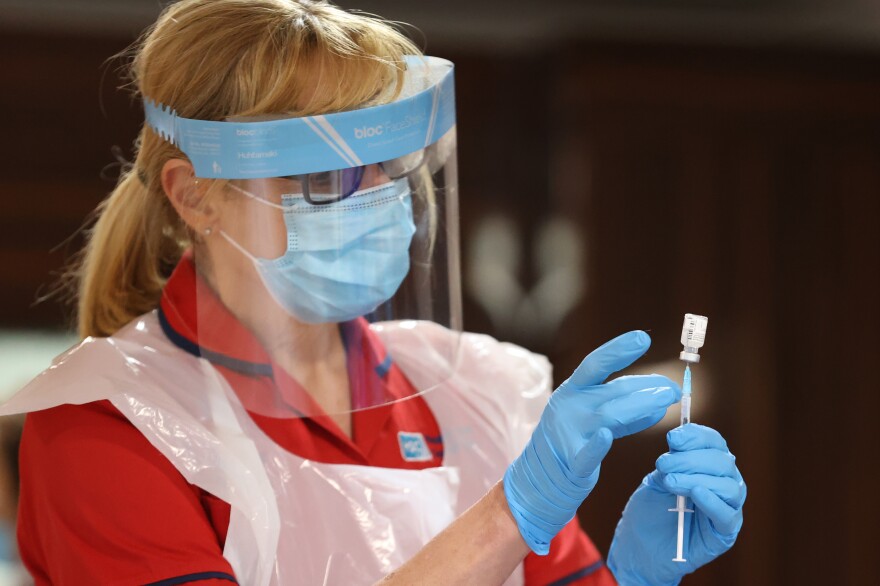The first COVID-19 vaccine in the U.S. could get authorized for emergency use in a matter of days. But for state health officials, any excitement over any potential breakthrough is tempered by an overwhelming logistical test: distributing a vaccine to millions of Americans.
Claire Hannan, executive director of the Association of Immunization Managers, said there's "no shortage of challenges" for the people charged with planning the vaccination rollout for their state.
"The big question that program managers have is: Exactly how much vaccine am I gonna get?" Hannan said in an interview Wednesday with NPR's All Things Considered host Ari Shapiro.
She said the answer to that question is clearer regarding the Pfizer vaccine — the first coronavirus vaccine for which the Food and Drug Administration is expected to grant emergency use authorization as soon as this week.
With its German partner BioNTech, Pfizer has produced a vaccine shown to be 95% effective in clinical trials. But quantity is limited. The Trump administration has purchased 100 million initial doses of the Pfizer vaccine, a stockpile that will go first to front-line health care workers and residents in long-term care facilities
Meanwhile, immunization managers across the country are getting fluctuating estimates on the supply of another promising new vaccine from the biotech company Moderna, Hannan said, which is hindering their ability to plan.
"They have to factor in what their allocation is and what their allocation is going to be, because in order for them to flip the switch on their long-term care facility program, they have to have enough allocation in one brand or the other," she said. "It's kind of a chess game, making six moves in advance to get where they need to be."
Funding is yet another hurdle for states in pulling off their vaccination campaigns. As Dr. Rachel Levine, Pennsylvania's secretary of health, told NPR last week, the federal government allotted $340 million to states for vaccine distribution and administration, whereas it put billions toward producing a new COVID-19 vaccine.
Hannan said that amount is simply not enough to fund the distribution of a vaccine adequately.
"State and local governments could be just bankrupted by rolling this out," she said.
Copyright 2021 NPR. To see more, visit https://www.npr.org.




